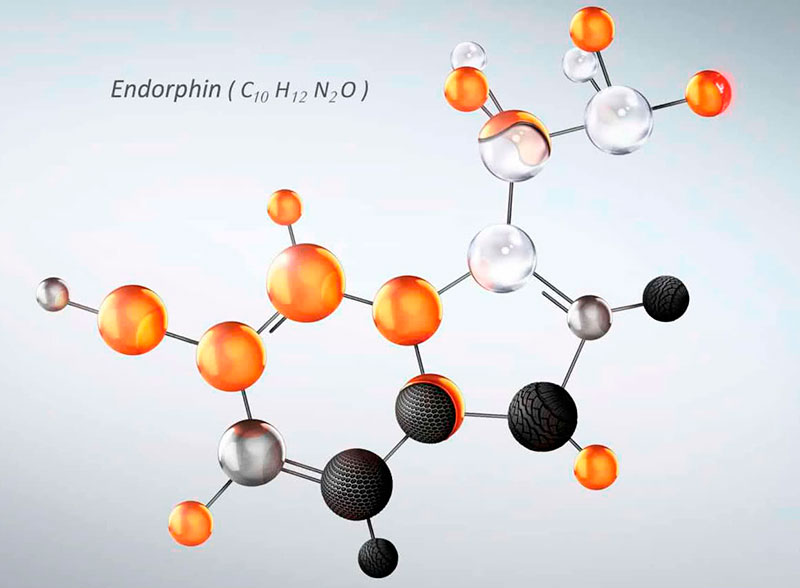Who doesn't like to laugh? In company or alone, over a witty joke, a good comedy, or a joke that fits the situation. But few people think that laughter is not just fun. It is also a complex process that involves many parts of the body. And not everyone knows that there is a whole science that studies laughter. So, let's talk about it in more detail, based on current data from the world's leading scientists.

Yes, and it is called gelotology.
Of course, laughter. After all, it is not only emotional but also physiological.
It not only prolongs life but also removes pain and strengthens immunity.
It happens and, fortunately, is quite rare.
In fact, there are a lot of reasons for laughter. But experts prefer not to split this concept and divide it into two categories - emotional and physiological. The first is caused by jokes, funny stories or situations. However, in some cases, a person is disassembled by laughter, and in situations where nothing funny happens - the so-called hysterical laughter. It occurs most often after a nervous breakdown. When a person is tense and waiting for something bad to happen, and then comes the news that completely defuses the situation, this person begins to laugh uncontrollably.
Physiological laughter results from an external physical impact - most often a tickle. It does not matter if they scratch your heels, poke your ribs or blow on your neck - different people have different sensitivities. What matters is that all of these external triggers result in a person laughing.
It is fascinating that the mechanism and consequences of both types of laughter are the same. That is, it does not matter whether you were told a funny joke or tickled - in any case, your mood will improve a little, and your body will feel quite different - but we will tell you about this a little later.
Of course, physiological laughter is much older than an emotional one. According to scientists, it originated about 10 million years ago. At a time when there was no human life on Earth - only great apes - hardly anyone could have joked or even laughed at the comic picture they saw back then. But laughter has already been heard on the planet!
It's hard to imagine, but something as simple as laughter plays a huge role in people's lives. 
Let's start with ordinary social interactions. It has long been proven that laughter brings people together. A person easily fits into society by telling a good joke in an unfamiliar company and making others laugh. However, it is not even necessary to be the source of the joke - by laughing in the company at someone else's joke, you feel closer to the people. No wonder people who often joke are always appreciated and are often the center of attention in any group.
In addition, laughter plays an integral role in helping people relax. This is what an entire science, laughter therapy, is built on. Initially, it was only used to treat and alleviate psychological illnesses, but today some non-dogmatic doctors recommend its inclusion as part of the recovery package for people who are physically affected. No wonder - laughter generates a good mood, and in this state, any illness goes much easier and faster than in moping.
It would seem that everything is simple - laughter is peculiar only to humans as the highest being who can appreciate the humor of a situation. However, as studies and years of observation show, this is not the case! Monkeys, dogs, and even rats can laugh! True, the laughter of the latter is not easy to hear - they express joy with a frequency of about 50 thousand hertz, while the human ear perceives a maximum of 20. But thanks to special equipment, scientists were able to record rat laughter at the end of the last century.
Surely most people have not even thought about it, but from a physiological point of view, human laughter is most similar to the usual cough. Judge for yourself - first, you inhale a certain amount of air (more than a normal inhalation) and then exhale in several short, jerky movements of your diaphragm.
To begin with, a person breathes in more air. This increases the oxygen content in the blood, which means that the brain receives an improved supply. As a result, endorphin is produced. People who love to laugh and are able to sneeze for 15-20 minutes almost without interruption, after this feeling of a state similar to light intoxication - lightness, excellent mood, and even slight dizziness. This feeling is completely harmless, in contrast to alcohol or drug intoxication, since the body does not get any substances from the outside!
By the way, a person experiences a similar sensation during great physical exertion. Fans of morning jogging are well aware that once they cross a certain threshold, fatigue recedes and is replaced by some kind of euphoria.
 The answer to this question follows from the previous point. Laughter produces endorphins. And this is an amazing substance, similar in composition to opiates. First of all, it affects the emotional state - the feeling improves dramatically. In addition, endorphins dull the pain and even contribute to faster healing! Scientists conducted a special experiment - a group of selected people pierced their fingers with a pin. And then they were invited to watch a good comedy. After the movie, they were pricked again with a pin, and it turned out that the pain after a long laugh was not felt as acutely as before!
The answer to this question follows from the previous point. Laughter produces endorphins. And this is an amazing substance, similar in composition to opiates. First of all, it affects the emotional state - the feeling improves dramatically. In addition, endorphins dull the pain and even contribute to faster healing! Scientists conducted a special experiment - a group of selected people pierced their fingers with a pin. And then they were invited to watch a good comedy. After the movie, they were pricked again with a pin, and it turned out that the pain after a long laugh was not felt as acutely as before!
In 2000, a study showed that people who do not like to laugh (well, or just rarely watch comedy and spend time in a fun company) are significantly more likely to suffer from various heart diseases. And there are several explanations for this. Of course, first of all, it is an opportunity to relax and have fun, which relieves stress and improves health. But we should not forget about physical activity. Yes, yes, a person actively consumes oxygen while laughing, thanks to which the load on the heart is reduced - it may beat less frequently, getting a little respite. But over dozens of years, these pauses accumulate enough to wear out the human heart less.
So, laugh in good health! Apparently, a minute of laughter really does extend life by 5-15 minutes!
And this is the flip side of laughter. It's hard to imagine, but in some cases, laughter really does kill. And we are not talking about situations when, for example, a person loses control of the car because of a fit of laughter. And we are not even talking about situations in which a person, laughing at the table, chokes on food.
Laughter itself can also lead to death. It is most often during prolonged laughter when a person already feels something is wrong but cannot stop. The causes of death can vary. For some people, it is asphyxiation - the person cannot breathe in air and dies due to oxygen deprivation. Others die of a heart attack - the heart gets a big load because of an attack of laughter and can't stand it.
Fortunately, this happens very, very rarely - all cases in history can be counted on one hand. Therefore, the benefit of laughter unambiguously exceeds the possible harm.
References: Links and sources